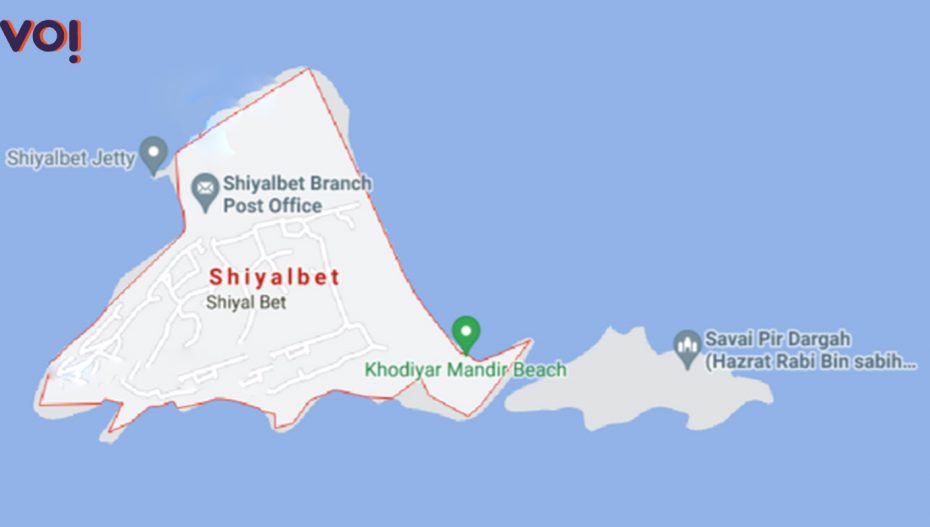Setting at rest an unsavoury controversy that the Gujarat Waqf Board had staked a claim for two pieces of land at Bet Dwarka, known as the abode of Lord Krishna, BJP MP from Jamnagar Poonam Maadam has stated that this is not true.
The Lok Sabha member issued a video with a clarification that no such claim had been made by the Waqf Board and that she had officially verified through the Law Minister and the District Collector.
Similarly, the Waqf Board has categorically stated that it had not made any application in any court for any land in Bet Dwarka while this petition was about Shiyal Bet in Amreli district.
“The petition that was filed in the High Court was regarding the Savai Pir Dargah near Shiyal Bet,” Sajjad Hira, Chairman of Gujarat State Waqf Board, told Vibes of India.
“The petition was not even filed by the Waqf Board, but a private Sunni trust filed the petition and we were just present as we are required,” he added.
Shiyal Bet falls in the Saurashtra region’s Amreli district, while Bet Dwarka is in the Devbhumi Dwarka district.
A misleading digital media story had created much consternation in the communally sensitive Gujarat, to the extent that the Jamnagar MP got worried.
Even Parimal Nathwani, Director-Corporate Affairs at Reliance Industries Limited (RIL), who belongs to Gujarat, tweeted on Monday, “How can a Waqf Board claim ownership of two islands in Bet Dwarka, the home of Lord Krishna? It’s shocking indeed; an eye opener! Gujarat High Court, of course, asked the Waqf Committee to rewrite the application!”
Another Twitter user wrote, “Bet Dwarka islands are being claimed by Waqf Board!” He even claimed that Gujarat High Court was disappointed to hear the application.
However, the Waqf board never claimed a right on Bet Dwarka, the application was about Shiyal Bet that was in news earlier this year for being a village with no Covid-19 cases even during the second wave.
The confusion apparently had been created by the alleged usage of “Krishnanagri” in the high court. MP Poonam Maadam said in a video, “Since the last two days, I have received information from different sources that the Waqf Board has claimed two islands in Beyt Dwarka and they had filed a petition at Gujarat High Court for the same.”
She also claimed in the video that the judge asked in the court how could the Board claim land in “Krishnanagri”.
“I talked to the Law Minister and the Collector and received the information that there are two islands called Shiyal Bet in Jafrabad in Amreli district, which was referred by the judge to the vacation bench. I believe that this is an error after seeing the word Bet; they immediately referred to Bet Dwarka.”
“The entire incident is about Shiyal Bet and not Bet Dwarka. This is a misunderstanding. I assure you that if it is not a misunderstanding then we will not let anyone claim Bet Dwarka on the basis of encroachment.”
“It is a holy place and always will remain the same. All the devotees are always welcomed,” assured Maadam.
Under the Waqf Act of 1954, Waqf is defined as ‘the permanent dedication by a person professing Islam of any movable or immovable property for any purpose recognised by the Muslim law as pious, religious or charitable’.
In the creation of a Waqf, the relevant property or asset is deemed non-transferable or detained forever, as a charitable act towards God. As such, the validity of a Waqf is contingent upon a defining feature of permanence. Essentially, this amounts to a transfer of ownership (in principle) of the asset to God. A Waqf can be either public or private.
Public Waqfs are created to serve charitable ends, while private waqfs are often willed to a property owner’s direct descendants.













